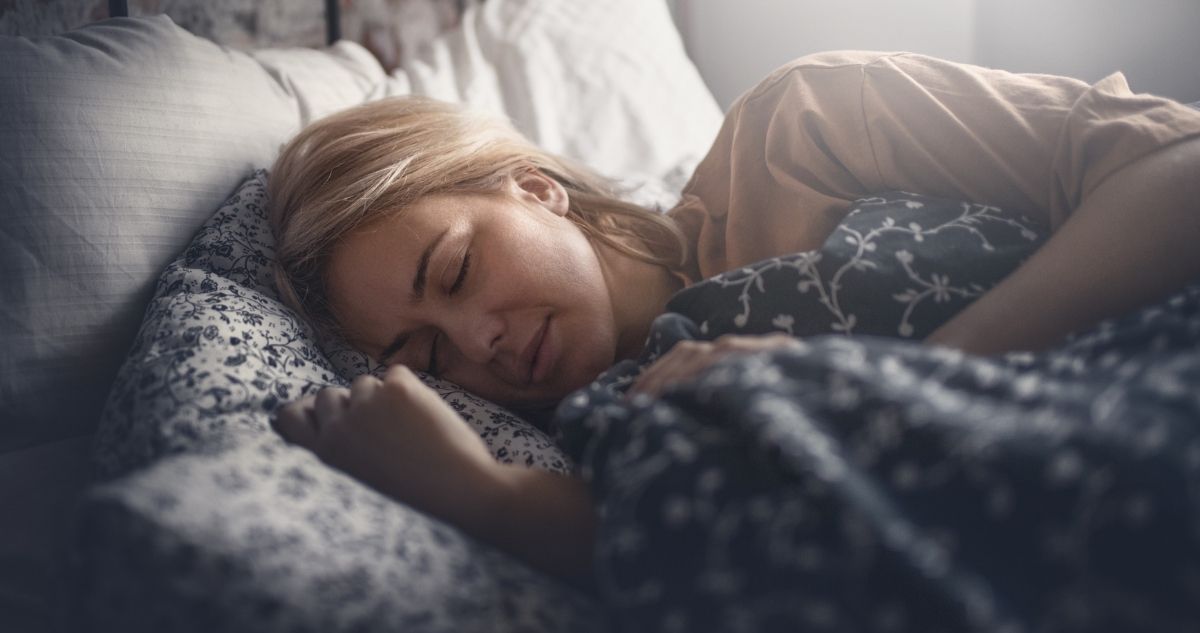Sleeping After A Head Injury is one of the most common injuries people suffer from and can lead to a host of symptoms, including headaches, dizziness, memory loss, confusion, and more. Here’s a list of things to consider if you have a head injury. This is a long list, but it will help you decide what to do next.
You may have heard that sleeping after a head injury can be bad for your brain. Some say you should avoid it.
But what do doctors and neuroscientists know about the effects of sleep on brain health?
fter reading this article, you will learn about the science behind head injuries and how sleep impacts them.
Many people have become sleep-deprived due to increased stress levels, poor sleeping habits, and various other factors.
According to the National Sleep Foundation, “sleep deprivation is a leading cause of accidents and injuries in the workplace, and it can impact the brain’s ability to learn, think, and remember.”
For this reason, it’s important to get a good night’s rest each and every, but what can you do if you’re not getting enough sleep?
You’ll also discover the benefits and risks of sleep and how to ensure your brain is operating at peak performance during your next shift.

What are the symptoms?
This is a tough question to answer. It depends on your health condition. Some people can fall asleep right after waking up, but for others, it takes longer. I had to sleep for 2-3 hours after waking up.
So I’m going to say that it’s worth a try if you feel like you can’t fall asleep without sleeping pills.
As I mentioned earlier, sleeping can be difficult for people with head injuries. But there are ways to deal with it.
Many factors can affect whether someone can fall asleep or not. For example, if you have trouble falling asleep, you may wake up frequently.
If this happens, you may try taking medications or supplements to help you sleep. It can also be helpful to adjust your sleeping environment. Did you know that sleeping after a head injury can damage brain cells? Did you know that sleeping after a head injury can affect your memory?
We’ve all been there. You get a concussion and end up in the hospital. But did you know that you need to rest afterward? And that it can affect your memory and your ability to think.
The good news is that when you’re done resting, you can improve your memory and cognitive abilities.
We all know that getting a good night’s sleep is important, but new research suggests that less than six hours sleep could increase your risk of stroke.
According to the Centers for Disease Control and Prevention (CDC), one in five people in the U.S. has a history of stroke. However, new research shows that not sleeping enough could be a risk factor for stroke.
What can you do?
As a young person, you may have suffered a head injury caused by a car accident, sporting injury, or illness. It’s important to remember that head injuries can have long-term consequences, especially if the damage is severe.
The best way to treat a head injury is to seek medical attention as soon as possible. If you feel like you’re experiencing any of the following symptoms, seek immediate medical assistance:
Headaches
Confusion
Loss of consciousness
Vision changes
Nausea
Vomiting
Diarrhea
If you have experienced a head injury, you may have memory issues. These could include:
Dizziness
Difficulty remembering names
Confusion
Difficulty concentrating
Sleeplessness
Problems with your balance
Slurred speech
Fatigue
These symptoms may last for several weeks or months after the head injury.
Sleeping after a head injury is important, as sleep can help reduce the impact of post-injury symptoms.
I hope you found this article useful. Remember, we’re all human, and we all make mistakes. As you’ve seen, there are several reasons why you might not be able to fall asleep, but hopefully you’ll be able to find a solution.
The key is finding out what’s preventing you from sleeping and then trying to figure out what can be done to fix it. If you’re still having trouble, I’d love to hear about it in the comments below.
I often review old posts and re-read them when I get stuck in bed with insomnia. It helps me stay focused and motivated to keep going.
If you want to start making money online, I’d love to hear from you.
:max_bytes(150000):strip_icc()/GettyImages-1193725541-3538d0dafd6045fa92d48d9912af4ab9.jpg)
How can you help yourself?
Sleeping after a head injury can be difficult. If you’re experiencing headaches, dizziness, or memory problems, you should get them checked out by a doctor. If you have a concussion, your doctor will likely prescribe a few weeks of bed rest and restorative sleep.
It may seem like a silly thing to worry about, but many people end up falling asleep in strange positions. This can cause neck pain and other problems. Taking the right precautions can avoid these issues and get a good night’s sleep.
The first step is to get into a comfortable position. Don’t try to fall asleep in difficult, uncomfortable work. If you sleep on your side, try turning over onto your stomach. If you sleep on your back, get up and walk around.
When you get into bed, put a pillow under your knees and use a blanket or a sheet to cover you.
Another thing to consider is to sleep on a firm but not too firm mattress. A good mattress will support your body well and won’t cause you to toss and turn throughout the night.
Sleep is important. Your brain releases hormones that make you feel happy and sleepy. When you sleep, your body repairs itself.
Head injuries are among the most common reasons for not resting properly. A bump, blow, or trauma to the head causes them. However, sometimes, we don’t sleep well, and th which negatively impacts us.
As a result, many people have insomnia. This happens when the brain doesn’t produce the right amount of sleep-promoting hormones.
Treatment for a head injury
The good news is that you don’t need to get out of bed to get better. As long you can recover faster if sleeping at least 6 hours a nig,t; you can sleep in a recliner chair or lie down in a comfortable position.
Some people wake up after a head injury and feel dizzy, but this doesn’t mean they should try to get up. Some people say that getting up may make the problem worse.
If you’re having difficulty falling, it’s probably because your brain needs time to rest. Try getting into a relaxing bedtime routine, and it should help.
In the meantime, it’s good to avoid caffeine and other stimulants. They can mess with your sleep cycle.
Finally, it’s important to remember that you don’t need to get out of bed immediately after you wake up. You can try to go back to sleep later, but it may take a few days.
The day I fell over on my head was a dark day for me. I didn’t know what to expect and wasn’t sure how I would feel when I woke up.
I knew the doctor said I wouldn’t feel any pain, but he was wrong. I did have a slight headache. I was also very dizzy and couldn’t remember much. But what made it worse was that I couldn’t sleep after falling over.
It was the worst night of my life. I spent the whole night awake and then all the next day too. I felt so miserable. I had never experienced anything like that before. I felt like a zombie, and I couldn’t function properly.
It was hard to see friends and family during this time. I didn’t feel like myself and couldn’t talk properly either.
After a few days, I felt better and could normally sleep again. I was glad I could get back to normal, but I was still worried about falling over again.
Now I’m fine, and I don’t worry about it anymore. I try not to walk too fast in case I do fall over.

Frequently Asked Questions (FAQs)
Q: How does a person get a concussion?
A: You can get a concussion from an automobile accident, a sports injury, or even a fall. You may have a concussion if you hit your head on the floor. You might experience certain symptoms if you have a head injury, such as headaches, nausea, dizziness, blurred vision, confusion, memory loss, ringing in the ears, and more. When someone has a concussion, they should stay home from school and activities for a few days to give their brain time to heal.
Q: Did you ever think you had a concussion?
A: I did not realize I had one until it was over. I did have symptoms that day, though, like a headache. I was pretty sure it was from a bad fall, but I didn’t realize it was a concussion until several months later.
Q: What’s the difference between sleeping on a plane and sleeping in your bed?
A: Sleeping on a plane is a different experience than sleeping in your bed. In your bed, you know where everything is, and you know your sheets, and you know where the pillows are. When you sleep on a plane, you aren’t familiar with any of these things. You have no idea what the pads are or where the blanket comes off, and you have no idea how far away from you the seatbelt is.
Q: What’s the hardest part about sleeping on a plane?
A: Getting comfortable. When I first got to the hotel, I didn’t want to get into my bed. I had to sit down to get comfortable. I tried to keep walking around until I fell asleep.
Myths About Injury
1. Sore throat, nausea, and headache are common in head injury patients.
2. Head injury patients should be closely observed 24 hours after injury.
3. Sleeping after a head injury will make you sleepy the next day.
Conclusion
In conclusion, it’s always good to know what is going on with your brain.
Knowing what to do in case of a head injury is just as important as knowing what to do when someone has a heart attack. This is because your head controls everything else in your body.
If you’ve had a head injury, I’d suggest getting yourself checked out by a neurologist. They can determine whether you’re experiencing any symptoms that might indicate a concussion.
In summary, if you’re looking for a way to make extra money during your recovery, I highly recommend finding a local medical clinic that offers in-house physical therapy and a rehabilitation program.
You can either work with them as a patient or service provider. Either way, you’ll get paid to recover.
 Fit Netion My WordPress Blog
Fit Netion My WordPress Blog



